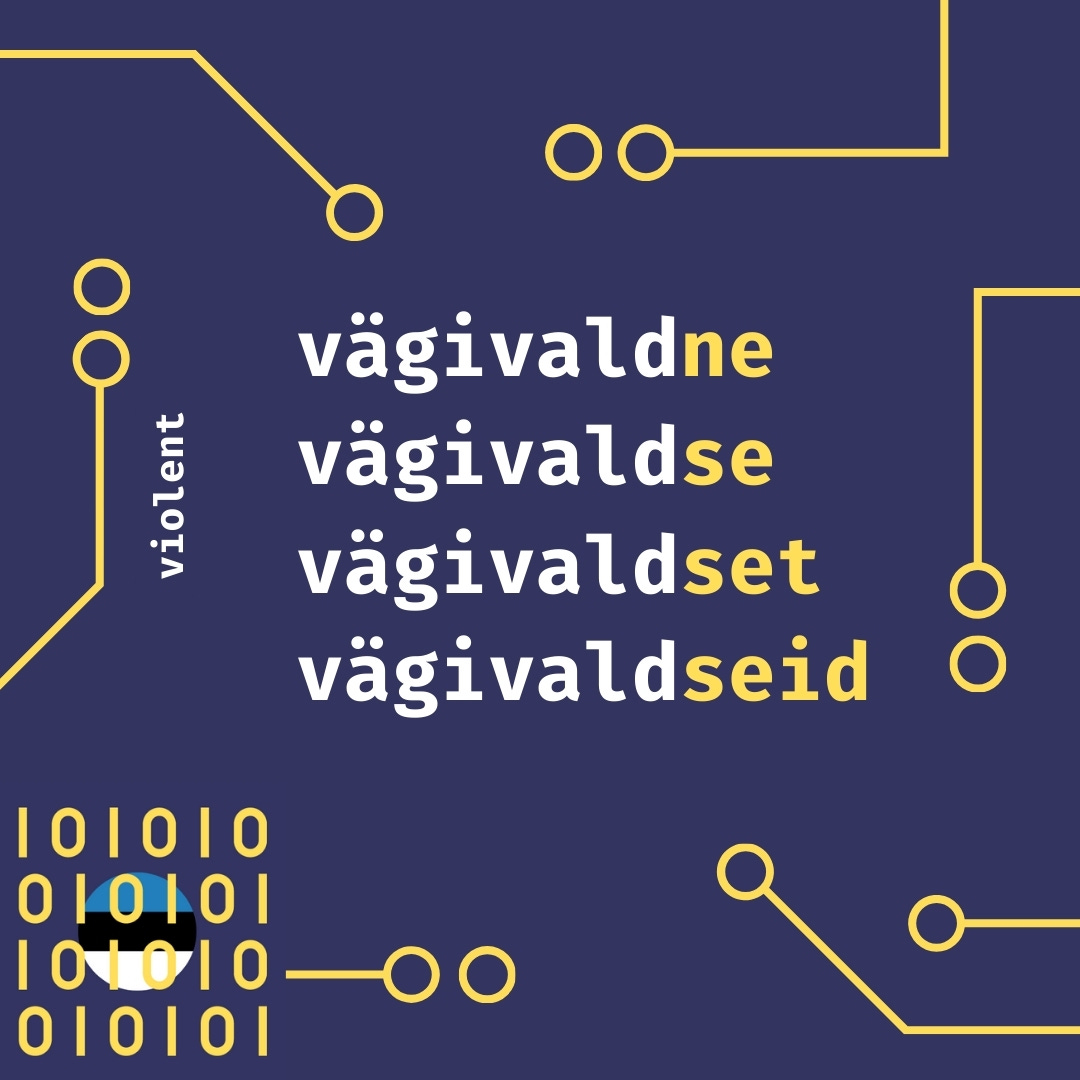Vocab: vägivaldne
violent
violent
Building blocks
vägi- - “force” or “power”
-vald - it’s likely derived from the word “valdama” (to possess or to own), carries the concept of having control
-ne - an adjective forming ending
Putting it all together, "vägivaldne" literally translates to something like "possessing force" or "having control through force." This meaning naturally evolves into the concept of "violent" because violence often involves exerting force or power in a harmful way.
How to use it:
Describing Behavior:
Ta muutus pärast õhtusööki vägivaldseks.
Translation: He became violent after dinner.
Describing an Event or Incident:
Eile õhtul toimus tänaval vägivaldne rünnak.
Translation: A violent attack occurred on the street last night.
Describing a Movie or Scene:
See film on liiga vägivaldne.
Translation: This movie is too violent.
Describing a Protest or Conflict:
Protest muutus kiiresti vägivaldseks.
Translation: The protest quickly turned violent.
Examples
Politsei sekkumine peatas vägivaldse peretüli
Literally: “Police intervention stopped violent family conflict”
Idiomatically: “The police intervention stopped a violent family conflict”
Politsei - Noun - Genitive Sg, "Police"
sekkumine - Noun - Nominative Sg, "intervention"
peatas - Verb - 3P Past Sg, "stopped"
vägivaldse - Adjective - Genitive Sg, "violent"
peretüli - Noun - Genitive Sg, "family conflict"

